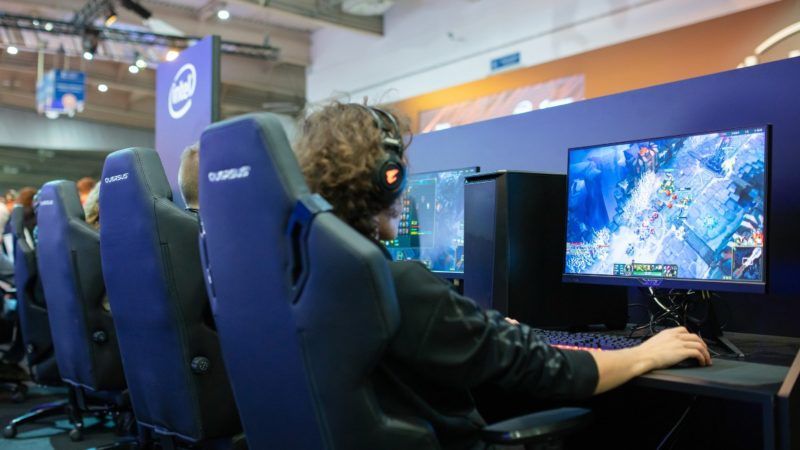Trump's TikTok, WeChat Ban Won't End Up Blocking Fortnite and League of Legends
An ambiguous presidential order affecting a Chinese company connected to several popular video games sows confusion.

After President Donald Trump put out a pair of executive orders banning transactions with the Chinese companies that own the popular communication apps TikTok and WeChat, people familiar with Tencent, the Chinese company that owns WeChat, started pointing out that Tencent outright owns or has major stakes in many high-profile U.S.-based video game companies. Did this mean, they asked, that some of the most popular games in the world are going to get banned in the United States?
Tencent owns the U.S.-based Riot Games, publisher of League of Legends, one of the most popular online competitive games. It owns 40 percent of Epic Games, publisher of the online gaming juggernaut Fortnite. It holds significant stakes in game companies that are probably less well-known to non-gamers, but suffice it to say that if you play video games online, it's extremely likely that you've at some point been playing a game that Tencent has a stake in.
Here's the vague and weird wording of the executive order as it pertains to Tencent:
The following actions shall be prohibited beginning 45 days after the date of this order, to the extent permitted under applicable law: any transaction that is related to WeChat by any person, or with respect to any property, subject to the jurisdiction of the United States, with Tencent Holdings Ltd. (a.k.a. Téngxùn Kònggǔ Yǒuxiàn Gōngsī), Shenzhen, China, or any subsidiary of that entity, as identified by the Secretary of Commerce (Secretary) under section 1(c) of this order.
It looks at first that it only bans WeChat—which is bad enough. We absolutely should not accept the idea that the White House has the authority for a blanket order banning citizens from using media platforms. If it thinks these tools are a national security risk, it can stop (and apparently has stopped) the government's own employees and contractors from using them.
But the paragraph also ropes in "any subsidiary of that entity," which naturally made people start asking whether that covers the games that Tencent either owns outright or has major stakes in.
The White House says the answer is no: An official has told the Los Angeles Times that this order only bans WeChat. What the executive order actually says is that the secretary of commerce will decide which transactions will be subject to these rules. So as far as it's possible to determine from the wording of the document, the WeChat order won't ban these video game companies…as long as the secretary of commerce doesn't include them.
We can be fairly confident that he won't. Riot Games was formed in Los Angeles before it was sold to Tencent, and it employs more than 1,000 people here in the United States. Banning video games would cost thousands of American jobs. It would have devastating effects for the U.S. economy (especially during this pandemic) and would face extremely high public resistance.
Nevertheless, this confusion shows both how little the Trump administration grasps any number of issues around technology, communications, and the global economy and why executive orders are just a terrible tool for managing them.
After all: If data mining, surveillance, and censorship are reasons to justify the TikTok and WeChat bans, why wouldn't games with Chinese connections be excluded? Video game companies also collect lots of data about their users, data that can be used to surveil people's behavior. They are also communication platforms, and they can get tangled up in censorship. Just last year, the video game company Activision Blizzard (of which Tencent owns 5 percent) landed in controversy when it suspended a professional Hearthstone gamer for showing support for Hong Kong protesters. The relationship between game companies and the Chinese government has, in fact, become a big topic for debate among gamers, much in the same way that movies being edited or altered for Chinese distribution is a discussion among film folks.
These are complex matters that can't be addressed by a simple executive order. Especially this mess of an executive order.

Show Comments (20)